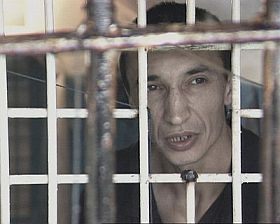


Sean Farrel: Farewell to Television?

HotDocs festival director Sean Farrel reflects on what festival director Claas Danielsen expressed in his opening speech: The tag line for DOK Leipzig this year was “The Heart of Documentary,” and while the competition and survey programmes showed plenty of life, the chatter indicated that broadcast television was pulling the plug on creative documentary.
A fellow festival colleague expressed concern about where the films for her rigorously programmed event were going to come from without broadcaster support. The title of an all day summit was “Farewell To Television,” with speakers looking for alternatives to traditional funding sources for documentary. And in his opening address DOK Leipzig Director Claas Danielsen appealed to broadcasters to raise the bar, aesthetically:
While artistic authors’ documentaries are frequently successful in the cinema, I have been observing a marginalisation of the genre in television for years. I see more and more clearly that this is the result of a dangerous attitude of television programmers towards their audience. They often regard them as slightly retarded people of dim perceptions and ultimately as children rather than responsible citizens. Complex, unusual and challenging subjects and narrative styles are way beyond their intellectual capacity – or so it is said.
More and more broadcasters at the pitch sessions I’ve observed recently use the term “festival film” as shorthand to explain their disinterest in funding a given project. They don’t have slots for “festival films”. Indeed, the gap between what is attracting interest at the Forums, and the work being presented in the Festival programmes themselves, has never been wider.
But among my favourites screened at Leipzig – 17 AUGUST (PHOTO), DISORDER, ITO-DIARY OF AN URBAN PRIEST, THE WOMAN WITH 5 ELEPHANTS – broadcast television as it currently exists just isn’t the platform for this type of filmmaking. Why would broadcasters fund this kind of work, all them art films of one sort? I mean, I’m the target audience, and I wouldn’t watch this stuff on television. They require a certain kind of attention that I just don’t have at home.
This has nothing to do with the size of the screen (I watched and appreciated all of them in the market viewing stations). These kinds of films just don’t work for me in my living room. And given their length and narrative structures neither does my computer. As mentioned below, festivals create a unique space for viewing such work. So until festivals start funding “festival films,” or at least become the drivers of new funding sources, our supply lines are in jeopardy.
Of course, there are many such funds – the Sundance Documentary Fund, IDFA’s Jan Vrijman Fund and Hot Docs’ Canwest Fund are just a few – but it seems clear that “curational funding” (like the Hubert Bals Fund at Rotterdam), and even collaborative funding between festivals, may represent some hope for creative documentary. Of course, where THAT money is going to come from is another issue.